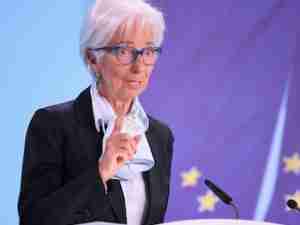Shipments to China, the rest of Asia and Europe underpinned Japan's rising surplus -- showing exports remain a main engine of the economy's growth.
But financial markets took the record surplus in their stride, with the focus stuck on the US weakness and lingering jitters in global markets, which have pushed back expectations of an interest rate increase by the Bank of Japan (BOJ).
Exports to the United States fell 9.2% from a year earlier, the biggest drop since November 2003, raising fears that subprime problems were taking a toll on Japan's major export destination.
"We can clearly see the impact of US subprime woes on exports to the United States," said Takeshi Minami, chief economist at Norinchukin Research Institute.
"US-bound shipments may continue to fall at the pace seen in September in the coming months."
The main culprit for the fall in US-bound exports was auto shipments, which fell 15.2% from a year earlier, and construction machinery for housing, an official of the Ministry of Finance said.
Economists said a rise in the yen also curtailed exports to the United States, but that overall exports were likely to hold up on the strength of the global economy.
"Exports will lose some momentum in the coming months but will unlikely slump even if the yen rises by 10%, as the global economy will continue to grow steadily," said Hiroshi Shiraishi, an economist at Lehman Brothers.
Overall exports rose 6.5%, slowing from the previous month's 14.5% increase.
Imports shrank 3.2% partly on falling imports of crude oil, confounding a consensus forecast for a 2.0% increase.
As a result, the trade surplus expanded by 62.7% to a record 1.64 trillion yen ($14.3 billion), compared with economists' median forecast for a 47.1% rise to 1.5 trillion yen.
Exports to the United States have been bumpy in recent months, but brisk sales to the rest of the world have supported export growth in line with the BOJ's economic scenario.
Lingering uncertainty over the outlook for global economic and market conditions have heightened expectations that the BOJ will hold off raising interest rates until early next year.
Investors see only around a one-third chance the BOJ will raise rates in December, rising to just over half seeing a rise by February, according to swap contracts on the central bank's overnight call rate.
The central bank has kept monetary policy on hold since raising the key policy rate by a quarter-point to 0.5% in February, which was the first rate hike since July 2006.
Japan's economy contracted 0.3% in April-June because of a slump in capital spending, but analysts expect exports to help boost growth in the July-September quarter. ($1=114.75 yen) (Reuters)



